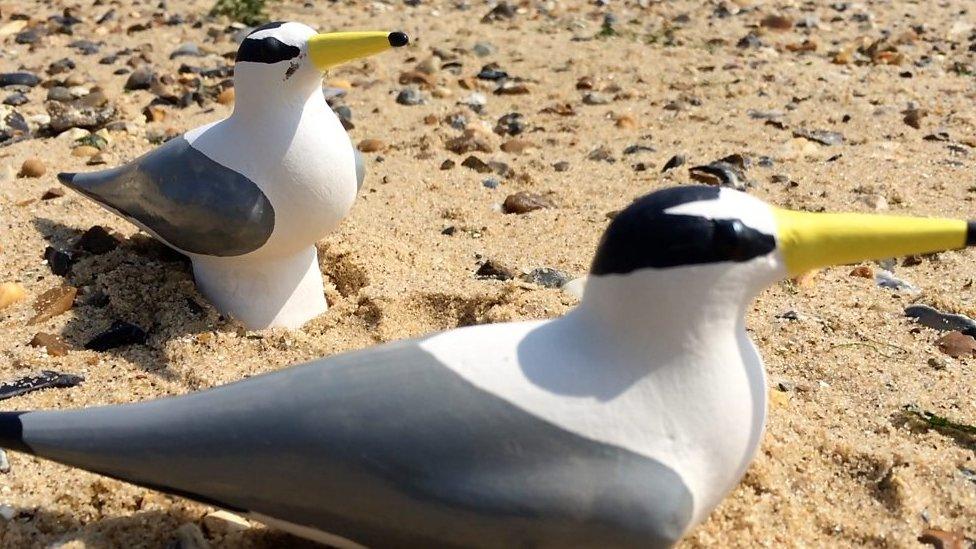Blakeney Point little terns have best season in 26 years
- Published
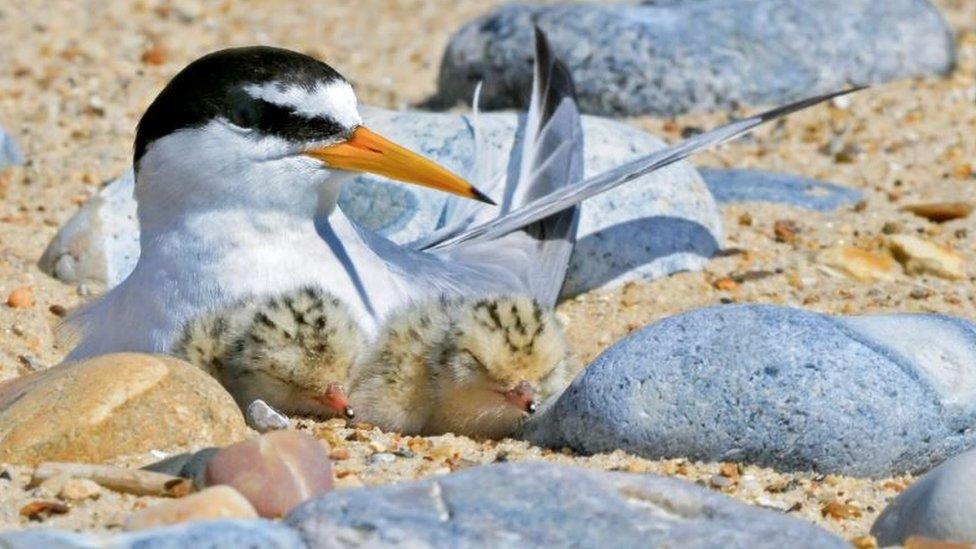
Little terns travel 3,000 miles from west Africa to breed on the UK coast
A colony of one of the country's rarest seabirds has had its most successful season for more than 25 years, the National Trust has said.
Nesting pairs of little terns fledged more than 200 chicks at Blakeney Point, off the north Norfolk coast.
The bird has been in serious decline nationally since the 1980s, with fewer than 2,000 pairs now left in the UK.
Rangers counted 154 pairs of little terns nesting over the summer months and 201 chicks - the most since 1994.
The National Trust, external, which manages Blakeney Point, believes the success was in part due to fewer people visiting the site at the beginning of the breeding season, during the first national lockdown.
The little terns nested at the far end of The Point, which is further away from the mainland, with fewer visitors walking that far along.
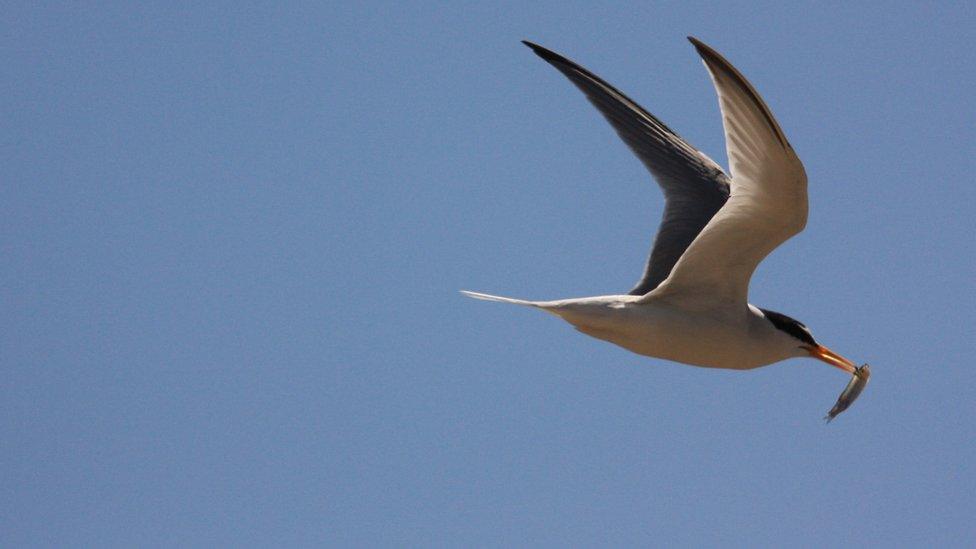
Little terns have been in serious decline nationally since the 1980s
There were fewer predators affecting the little terns this year, rangers said.
They believe this could be because the birds nested further away from the watch house, and were all together, meaning there was some safety in numbers.
Staff kept watch on the site to ward off predators using techniques such as laying out food sources away from the colony.
They also used clay decoys to encourage nesting in suitable areas of the shoreline.
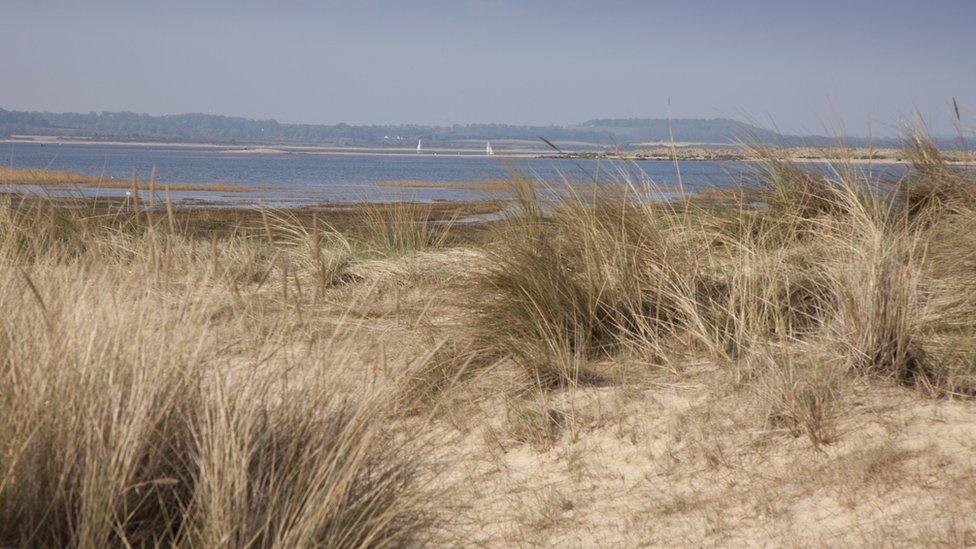
Blakeney Point is a four-mile shingle spit off the north Norfolk coast
Countryside manager Chris Bielby said: "Little terns have been rapidly declining in the UK for the past few decades, so it's particularly rewarding to see so many of these tiny seabirds fledging the nest.
"The species is still very much at risk and we'll need to keep up our efforts to make sure they have safe places to breed.
"But for now, it's good to be able to celebrate a successful season given what a challenging year 2020 has been."
Common terns had a similarly successful year at Blakeney Point, with 289 pairs fledging at least 170 chicks, the most since 1999.
Rangers believe the colony relocated from other nesting sites which flooded during bad weather in June.
Sandwich terns were late arrivals to the site but arrived in high numbers, almost triple that of the previous year.
Related topics
- Published21 June 2019
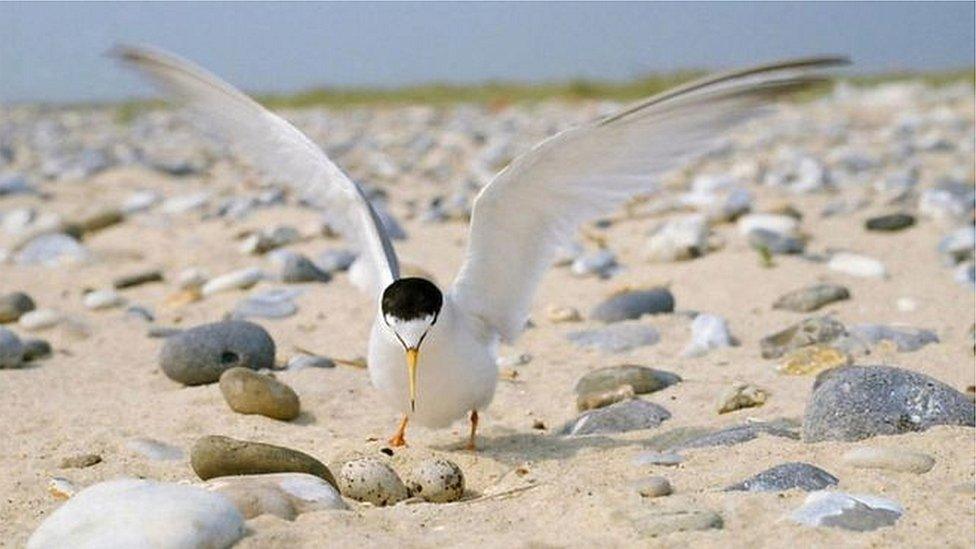
- Published4 October 2018

- Published2 June 2018
